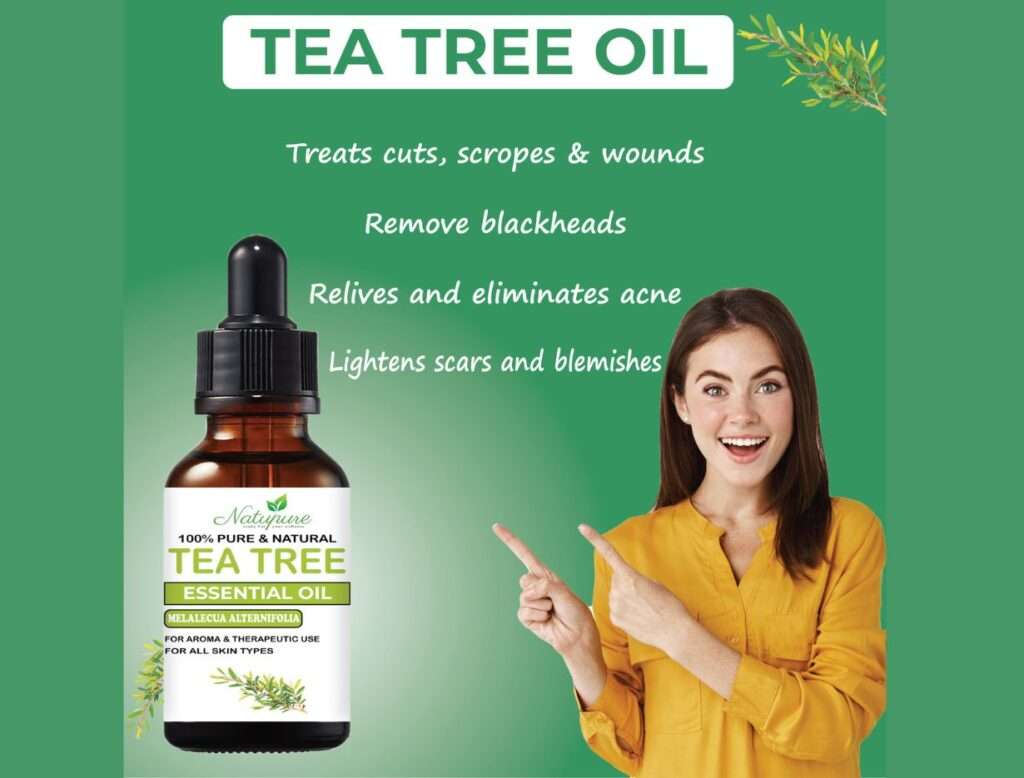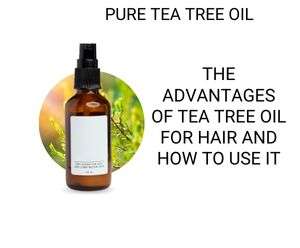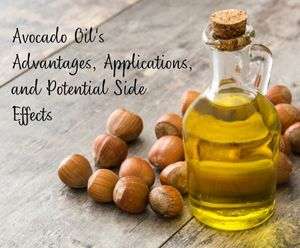The advantages of tea tree oil for hair and how to use it this ancient essential oil could provide relief from itching and flaking on the scalp.
For thousands of years, essential oils have been used in alternative medicine. Aside from their often pleasant aromatherapy properties, many essential oils are thought to have biological benefits such as antiseptic. Is tea tree oil a natural remedy for your itchy scalp and dandruff? To get their opinions on using tea tree oil for the scalp and hair, we turned to two dermatologists and a cosmetic chemist.
Tea tree oil for hair benefits
Starting at the scalp, tea tree oil has the power to completely transform your hair. Its antimicrobial, antibacterial, and anti-inflammatory qualities make it an effective dandruff treatment that also promotes healthy scalp conditions. Improving the condition of your scalp should be the first step in any attempt to boost hair growth because healthy hair and new growth both begin at the scalp.
Make sure you are using an essential oil and not simply a fragrance oil when treating your hair and scalp with tea tree oil because fragrance oils do not have the same health advantages. Hydrodistillation, steam distillation, dry distillation, or mechanical cold pressing of plants can all be used to produce essential oils. These are distinct from fragrance oils, which are frequently created in a laboratory.
1.Fights off dandruff flakes:
Tea tree oil shampoo users in this study reported a 41% improvement in their dandruff symptoms. Tea tree oil also combats the flake-forming yeast, which helps to lessen dandruff’s itching effects.
2.Antioxidant and antimicrobial properties:
King explains that it has antibacterial characteristics. Thus, seborrheic dermatitis and other eczematous scalp disorders can also be treated with tea tree oil. Strong antioxidants present in it can aid in reducing the redness, itching, and soreness that can be brought on by disorders of the scalp.
3.Inflammatory reduction:
According to Garshick, tea tree oil is also believed to lessen inflammation by lowering specific inflammation-related indicators. Rabach concurs, noting that the antioxidants in tea tree oil may have anti-inflammatory effects. Reducing inflammation may stop future hair loss because one of the main causes of scalp inflammation is hair loss.
4.Controls the production of oil:
Oily or greasy hair is frequently caused by dandruff or other germs on the scalp.Tea tree oil can help regulate oil production on the scalp, resulting in a healthier scalp and better-looking hair.
5.Can help with new hair growth:
A healthy scalp is necessary for new hair growth. Tea tree oil has no direct relationship with hair growth, but improving overall scalp health can foster a healthy environment for hair growth, according to Garshick. Rabach adds that there is some evidence that it may improve scalp health and reduce dandruff, allowing hair to be at its healthiest.
6.Delousing treatment that is completely natural:
When exposed to head lice, harsh chemical treatments are frequently used to control the infestation and prevent new eggs from hatching. According to one study, tea tree oil is an effective lice treatment for those seeking a holistic approach to delousing.
7.Considerations for Hair Type:
Considerations for Hair Type Tea tree oil is safe for all hair types and textures, according to experts, because it has little to no effect on the hair itself. Tea tree oil can be used to treat scalp conditions.

How to Apply Tea Tree Oil to Your Hair
You can use tea tree oil as an active ingredient in shampoos or in its pure essential oil,
Tea tree oil drops used to shampoo:
Tea tree oil can be used to your preferred shampoo to prevent irritation. Mix your usual volume of shampoo with two to three drops of tea tree oil in your palm. Rinse thoroughly after five minutes of application. Avoid adding tea tree directly to the shampoo bottle because you might need to stop using it if irritation make a massage oil:
Add to your preferred hair mask:
To cure dandruff and dryness simultaneously, incorporate a few drops of tea tree oil into your preferred deep conditioning treatment.
Utilize items containing tea tree oil:
You run the danger of creating a stronger than intended remedy when you mix it yourself, which can irritate. Garshick advises purchasing items that already have tea tree oil to ensure their concentration. The following tea tree oil products are suggested by Garshick.



